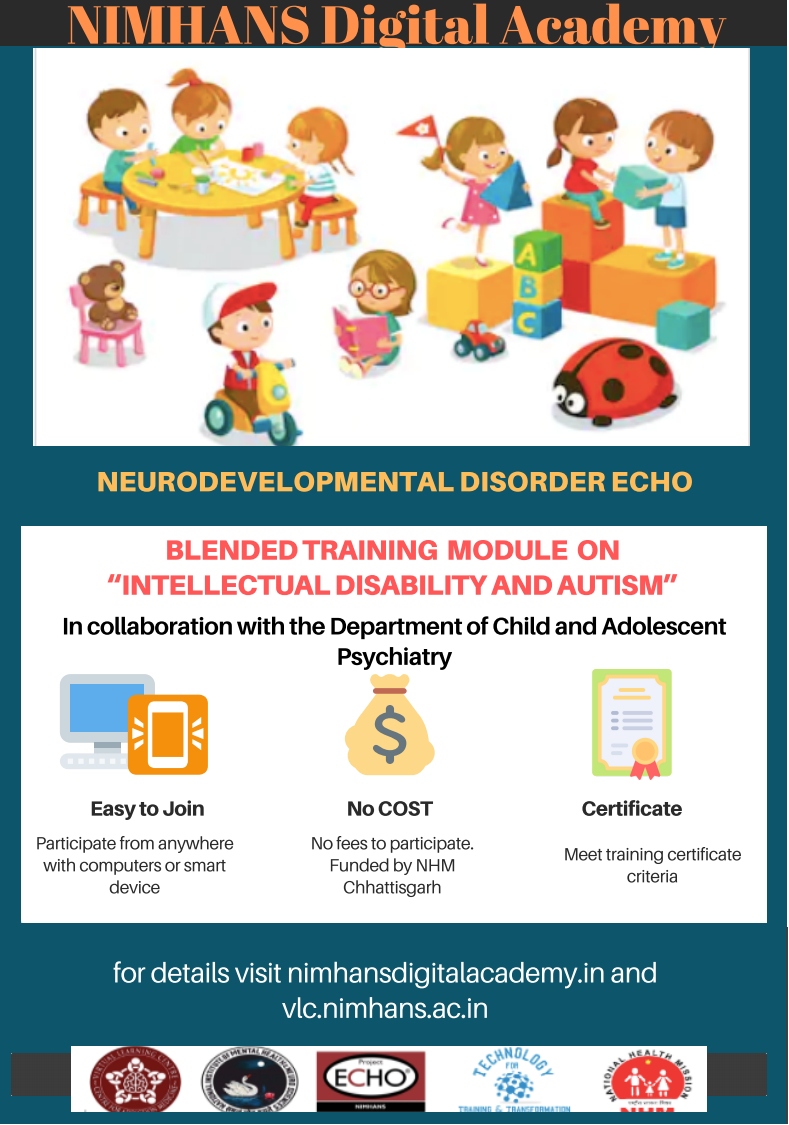Background
Neurodevelopmental Disorders (NDDs) is an umbrella term covering disorders such as Intellectual Disability (previously termed Mental Retardation) as well as Autism Spectrum Disorders, Speech and Language Disorders, Motor and Coordination Disorders and Attention Deficit Hyperactivity Disorders. These disorders onset during childhood, i.e. the developmental lifespan, and reflect a delay in functions related to central nervous system development and maturation. With increasing age, a steady but delayed development may be seen, rather than the remissions and relapses that typically characterize other mental health conditions.
This course is designed to develop skills for the identification of delayed development and diagnosis of Intellectual Disability (ID) and Autism Spectrum Disorders (ASD). It also focuses on initiating first level responses for children with ID and ASD and their parents. In simple terms, this course is designed to encourage general practitioners in the community to manage ID and ASD with the larger aim of promoting early identification and intervention that are crucial for these conditions.
Objectives
At the end of the courses, learners will be able to:
- To identify normal and delayed developmental milestones in children
- To diagnose Intellectual Disability and Autism Spectrum Disorders
- To implement “best practices” for assessment and management of these disorders
- To organize multi-disciplinary referrals, including to higher centres, as per the specific needs of the child
